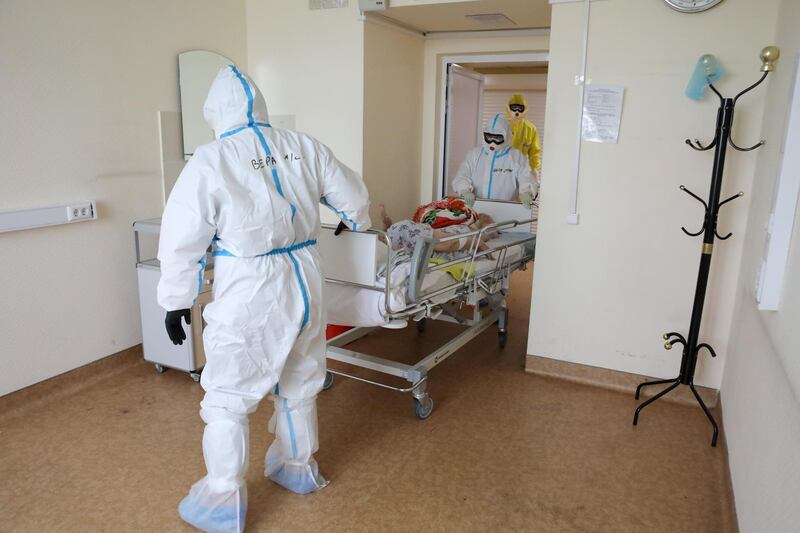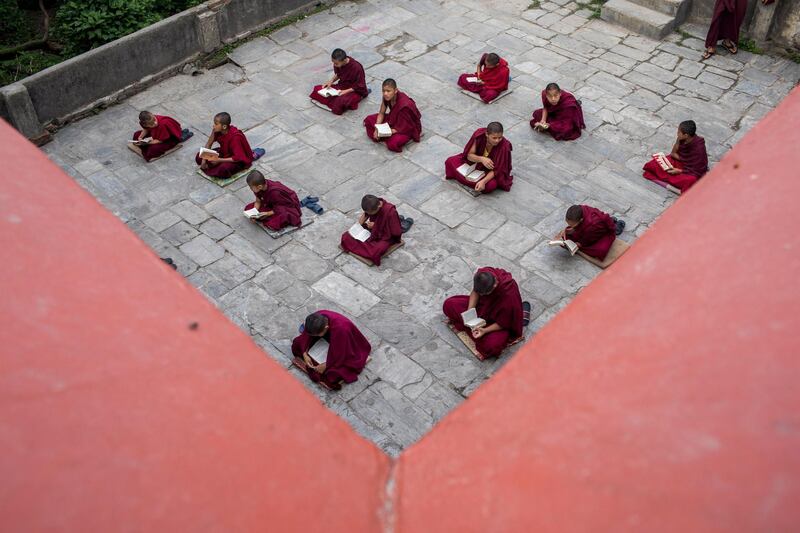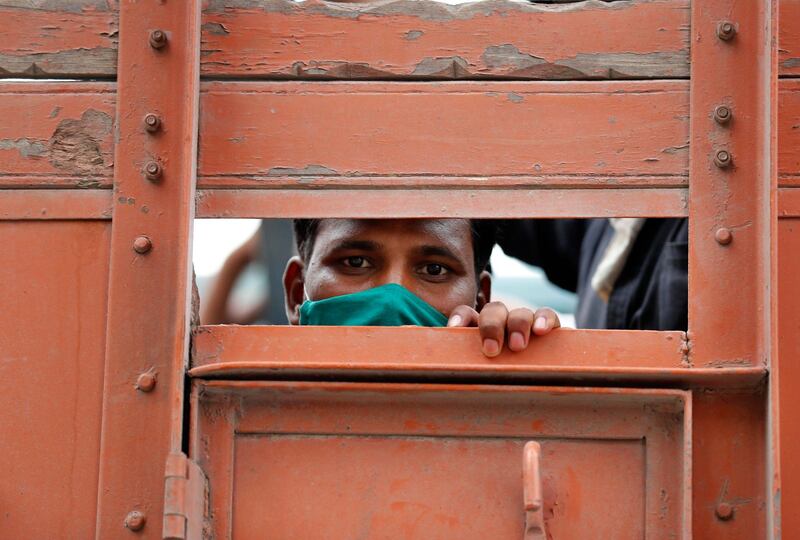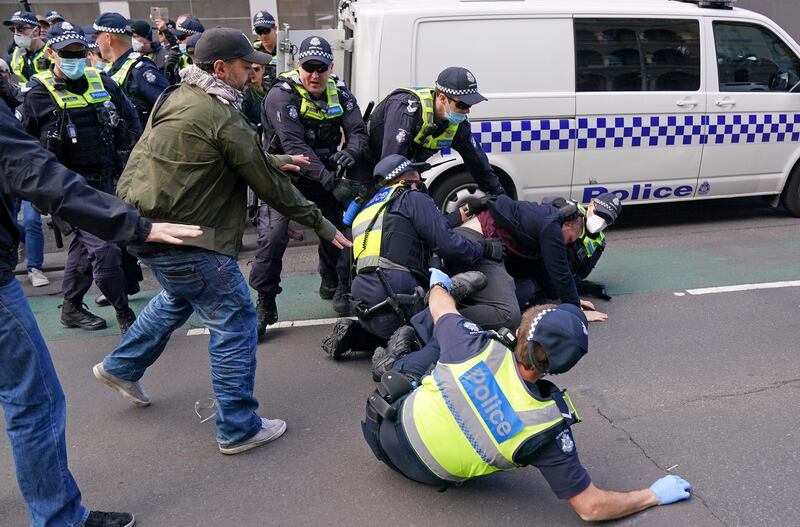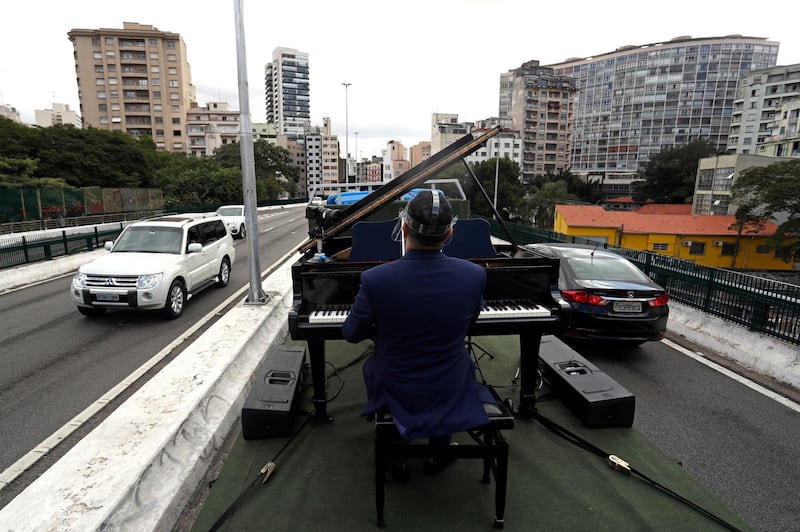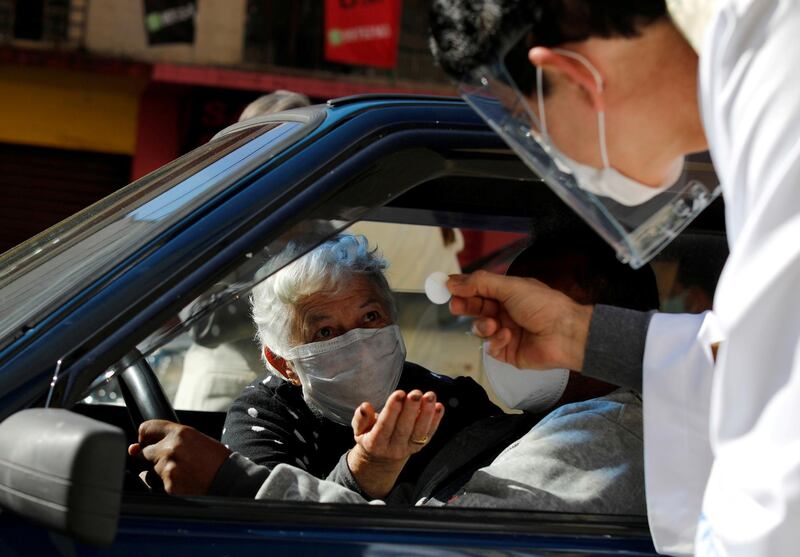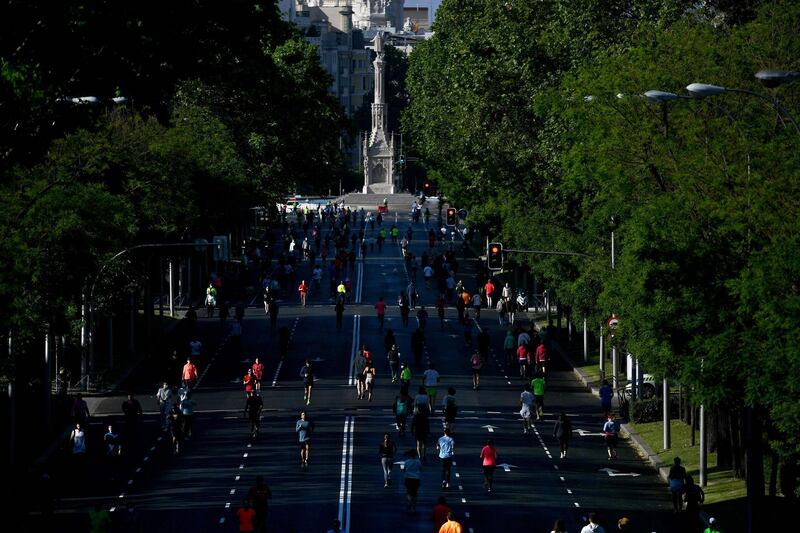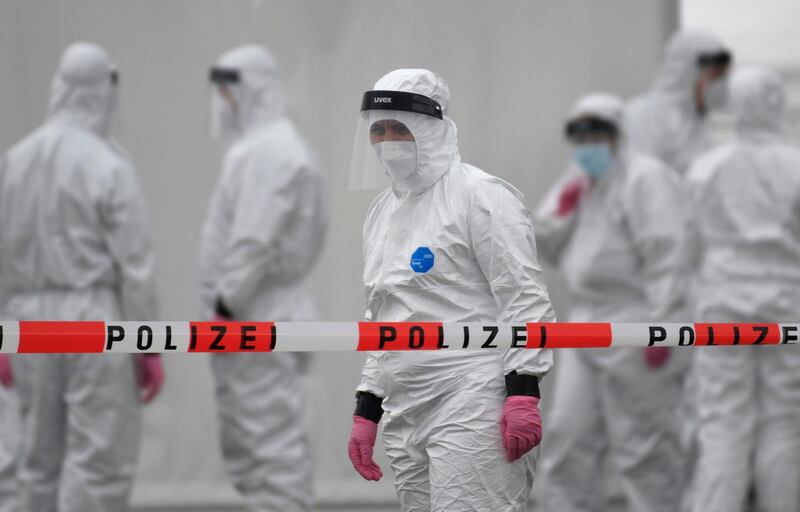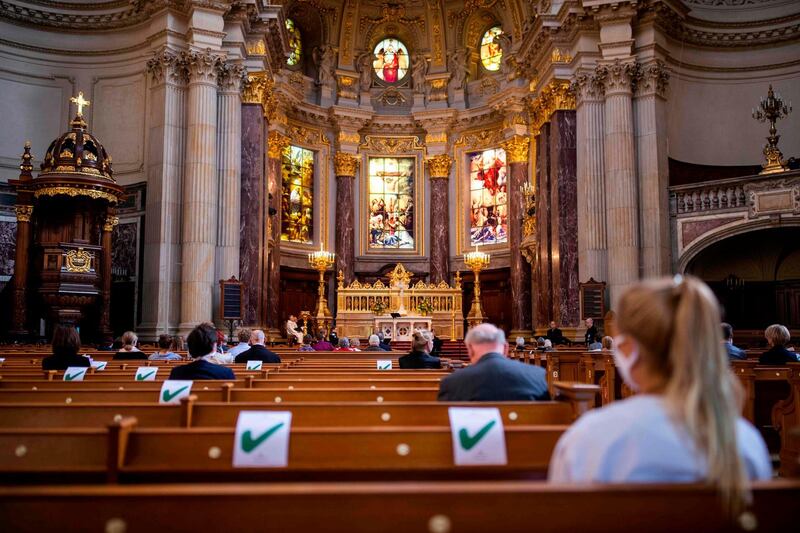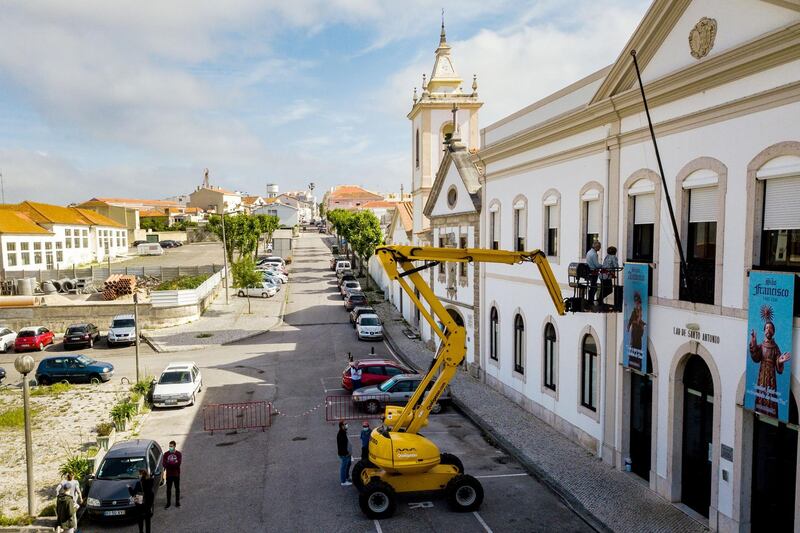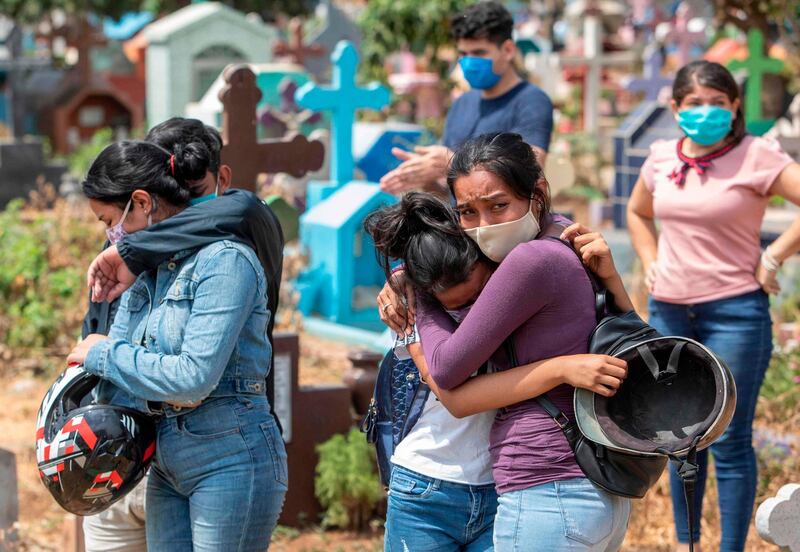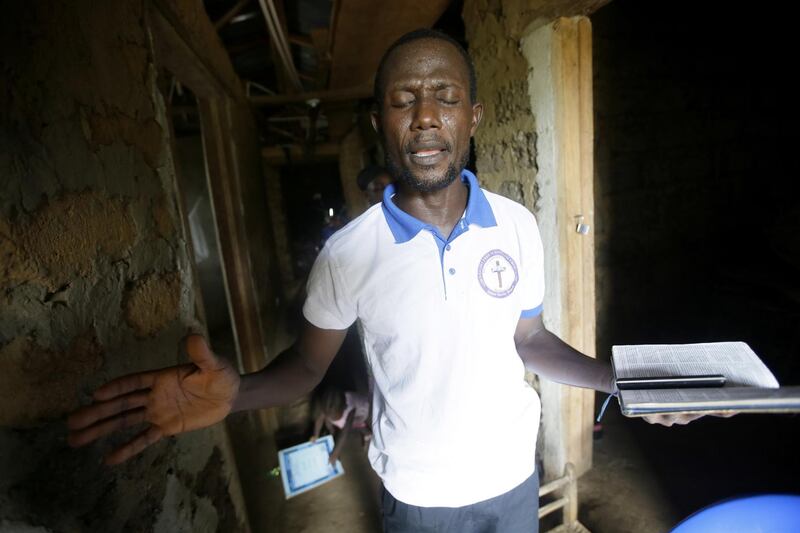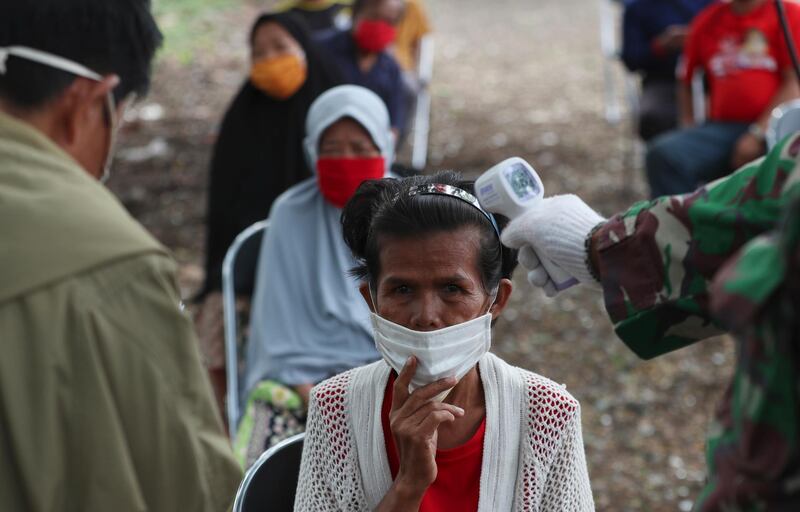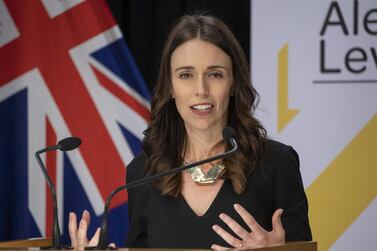Fourth-year medical student Alexandra says she wants to become an infections specialist, but when her school said students must do their required training in a coronavirus ward, she baulked.
"This is not volunteering by choice. Coronavirus is dangerous, and they should give people a choice," said Alexandra, who studies at Moscow's top Sechenov medical university.
Daunted by the prospects of contracting the virus and infecting family members, aspiring medics have protested against the decision to send students in their fourth, fifth or sixth year – who can be as young as 21 – to complete their medical training in coronavirus clinics.
Fire breaks out in Moscow hospital treating Covid-19 patients
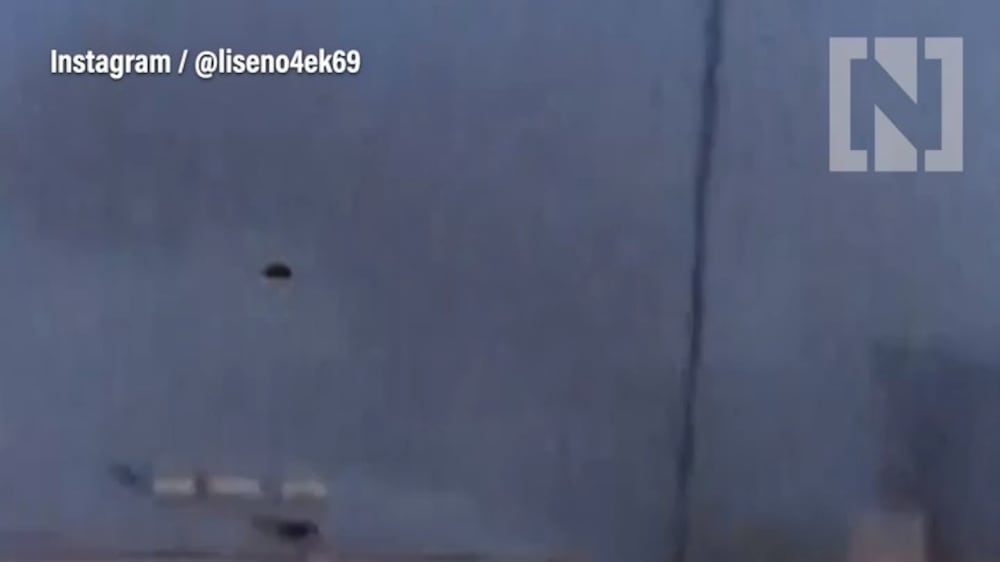
The ministry of health announced on April 27 that the measure would go into effect from May 1, and only students with "medical contraindications" can refuse.
Students of all medical fields, including dentistry and paediatrics, are included, according to the decree.
"Those who refuse to go will not get their qualification and can face expulsion," said Svetlana, a sixth-year student.
Confronted with a relentless daily increase of confirmed cases, which on Monday pushed its total number over 220,000, Russia is taking measures to staff its hospitals as it expands the number of beds by 100,000 across the country.
But many students say they do not want to be put in such conditions without allocated housing and assurances that full protection will be issued.
Svetlana, Alexandra and other students spoke to AFP on condition of anonymity for fear of being expelled or other reprisals.
"We're not doctors yet, our task is to get an education," said Alexandra. "There are fears that we will be of no use and spread the infection instead."
She said students are being offered training in regular hospitals or coronavirus hospitals, including "red zones" where patients are treated for Covid-19.
"There is no adequate protection, and it's difficult to believe that if the doctors don't have enough, they would find it for us," she said.
_______________
Coronavirus around the world
_______________
In an anonymous appeal circulated on social networking sites, students at the Pirogov medical university in Moscow have asked rector Sergei Lukyanov to make the coronavirus mobilisation "voluntary".
The Pirogov university and the department of health in the Moscow government did not respond to a request for comment.
At the Sechenov university, vice-rector Tatyana Litvinova said that working with coronavirus patients would not be obligatory and the school would not punish anyone who declined.
"If a student does not want to do it, they can do their practice in a different establishment, nobody is going to force them," she told AFP, contradicting the text of the health ministry decree.
She further promised that students in Moscow would be paid a salary of 100,000 rubles (Dh4,980) and given personal protection.
Ivan Konovalov, spokesman for the Alliance of Doctors, a union associated with opposition politician Alexei Navalny, said that the authorities have turned to students because of medical staff shortages.
"Healthcare reforms of the past years have led to the departure of many doctors" from the profession, he said.
This problem was even flagged by government institutions including the Audit Chamber, which said that "optimisation" of the sector – a euphemism for cuts – has left Russian healthcare weakened during the epidemic.
But Russia needs more doctors, not less: staff are required at various temporary facilities set up in the past weeks for light coronavirus cases, as the number of people testing positive has grown by over 10,000 daily for over a week.
More than 100 doctors have died treating the infection, according to a list of names kept by people in the profession.
Mr Konovalov said that despite these difficulties, reaching out to students is not the solution.
"Even those in their last year don't have experience to work in these conditions," he said.
Students have launched an online petition to demand that the ministry decree is revoked. An Instagram campaign against "forced labour" is ongoing.
Not all Russians are sympathetic.
"Why did you choose this profession? To save lives!" one user of the VK network named Marina Goncharova commented in a group dedicated to the subject. "If war breaks out, are you also going to hide behind your mother's skirts?"
